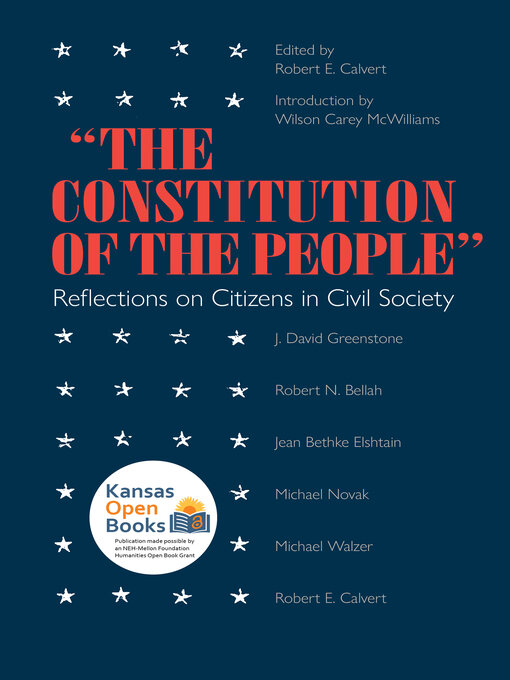The Contributors
Preface
1. Introduction, Wilson Cary McWilliams
2. Adams and Jefferson on Slavery: Two Liberalisms and the Roots of Civic Ambivalence, J. David Greenstone
3. Citizenship, Diversity, and the Search for the Common Good, Robert N. Bellah
4. "In Common Together": Unity, Diversity, and Civic Virtue, Jean Bethke Elshtain
5. How to Make a Republic Work: The Orginality of the Commercial Republicans, Michael Novak
6. Constitutional Rights and the Shape of Civil Society, Michael Walzer
7. Political "Realism" and the Progressive Degradation of Citizenship: A Quiet Constitutional Crisis, Robert E. Calvert
Index
|To be a U.S. citizen is to be a member of a constitutional order that requires political unity but is also committed to social and cultural diversity. How do we solve the riddle of the one and the many? What is, in Tom Paine's words, "the constitution of the people"?
This is a perennial question that goes to the heart of American society and that increasingly shapes public debates about the health of our body politic. To answer it, Robert Calvert, a political scientist, has collected original essays by six distinguished scholars who are among the most influential interpreters of the American scene today.
The essays included in this book are united by the effort to understand America's identity in a way that does justice to the paradoxes and pluralities of its politics. Each seeks to find some middle ground between a government too intrusive and citizens too removed from public life, a balance between particular freedom and common purpose. Vigorously argued, lively, and accessible to the general reader, these essays challenge much of contemporary thought on the meaning of American constitutionalism.
Open access edition funded by the National Endowment for Humanities and the Andrew W. Mellon Foundation Humanities Open Book Program.

